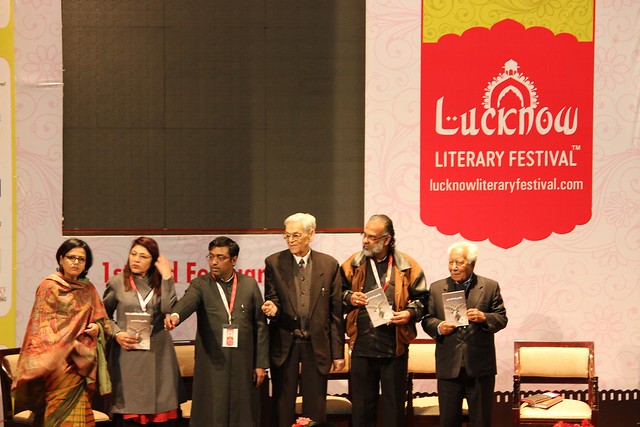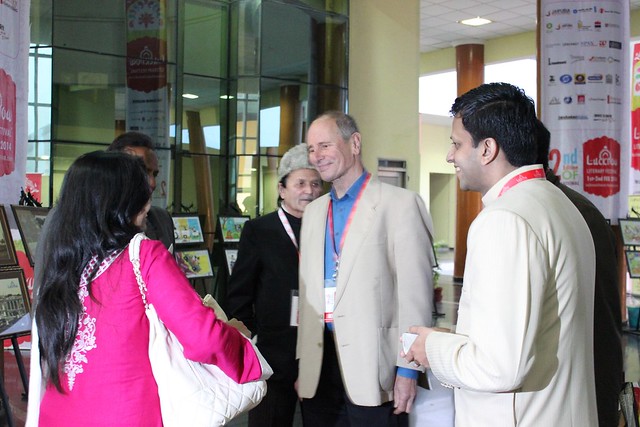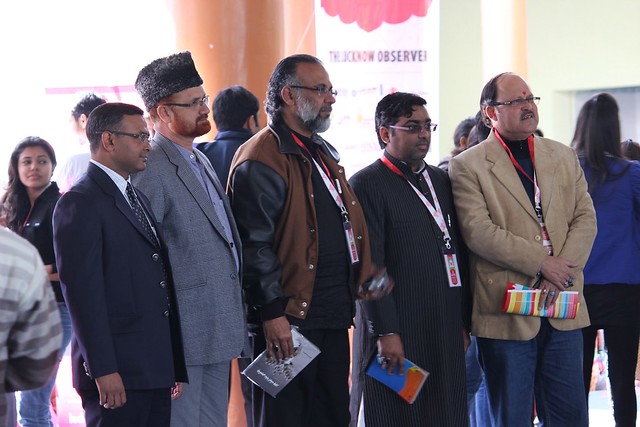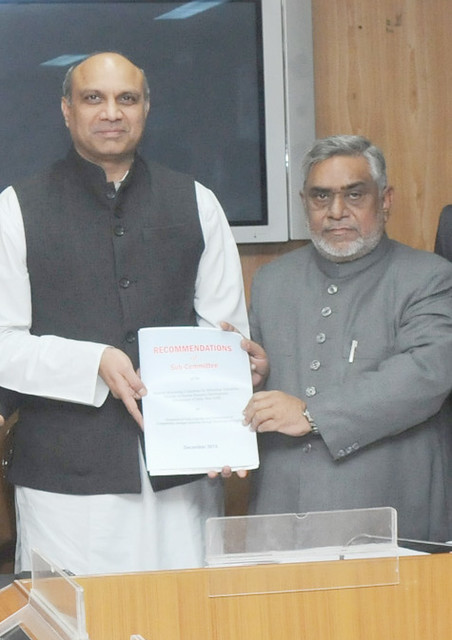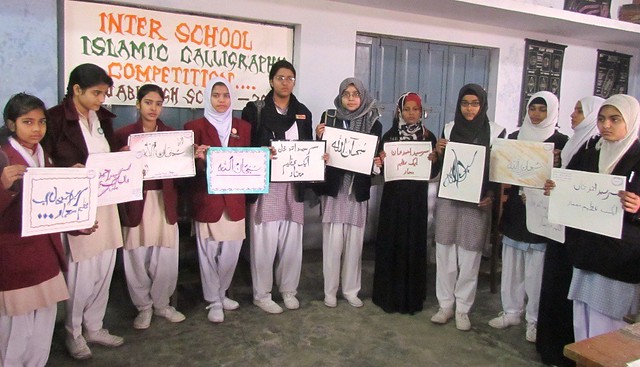By Syed Zahid Ahmad,
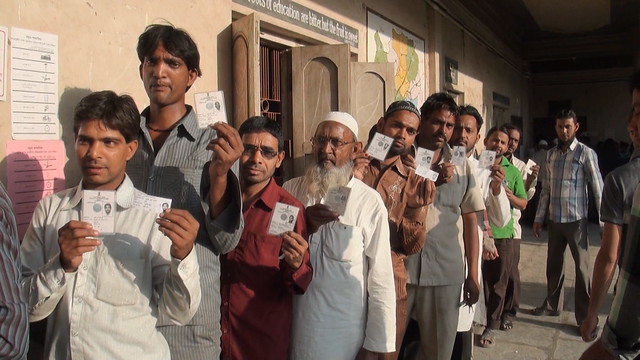
There are as many as 150 Parliamentary Constituencies where Muslim voters will decide results in the Lok Sabha Election 2014.
Even Narendra Modi (promoted candidate of RSS) has now realized that the Gujarat Riot is not going to make him the Prime Minister of India unless the Muslim voters of Utter Pradesh support him. Muslims on the other hand are now fed up with religion oriented politics (catered by so called secular parties) without any remedial measures to the challenges faced by Indian Muslims. What mistakes have brought UPA to a level down where the party is found out of race? Congress and other secular parties have been marginalizing Muslims by allocating Muslim intelligence to fight in a corner called Minority cell. These parties hardly bring Muslims into mainstream politics and economic development.
States | P. C.s |
| Utter Pradesh | 45 |
| Bihar | 17 |
| West Bengal | 14 |
| Maharashtra | 14 |
| Kerela | 10 |
| Karnataka | 10 |
| Andhra Pradesh | 7 |
| Assam | 7 |
| Jharkhand | 6 |
| Jammu & Kashmir | 5 |
| Gujarat | 5 |
| Uttrakhand | 2 |
| Delhi | 2 |
| Rajasthan | 2 |
| Madhya Pradesh | 2 |
| Haryana | 2 |
Total | 150 |
After observing the odd treatment to Dr. Faheem Baig when he opened his mouth before the Prime Minister, Muslims have realized that they would be thrown out of the door if they dare to speak the truth before secular parties like Congress (I). These parties kept on listening and assuring to take action; to help Muslims, but never presented the required solutions.
Political leaders like Rahul Gandhi, Mulayam Singh, Laloo Yadav, Mamta Banerjee Nitish Kumar, Sharad Pawar and Mayavati etc. keep silence over demand by a section of Muslims to provide room for faith based financial system (as alternative to interest based system) so that Muslims can draw needed finance for economic growth violating Islamic laws. They might just not be interested to allow Indian Muslims access finance in accordance to their faith. Dr. Subramunium Swamy has raised objection over Islamic banking, despite the fact that he has no objection in the mechanism of Islamic banking except ruling of Muftis and clerics. If that is the case, why politicians like Narendra Modi and Dr. Subramunium Swamy not assured prompting secular mode of Islamic financial products and services like equity finance, lease finance and forward Sale contracts etc. through networks of retail banks, NBFC or MFI network. Why all subsidies in India are linked with interest based loans only? These politicians just don’t like to allow Muslim achieve better living of standard unless Muslims avoid practicing Islamic economic principles.
If party desirous to win Lok Sabha election in 2014 it would be important to envisage the urgent need of Muslim community. Muslims are also human beings like non Muslims and have similar problems of finance, shelter and livelihood (added with following Islamic ethics and culture). They need socio economic welfare schemes complying with Islamic faith; not schemes like distribution of cycles to teenage girls. They just don’t need any parallel economic or financial system, but a room in the existing financial system where they can follow Islam along with achieving better lives.
Ask any young Muslim about their need and priority. All would ask for better live along with freedom to follow Islamic ethics. They have no point of naming any street or university on the name of any Muslim leader or else. They just wish to grow higher along with freedom to follow Islam. Despite several appeals by Muslim intellectuals and leaders, the UPA failed to realize the need to deliver any room for Muslims where the community can grow economically along with freedom to follow Islamic ethics (defining the lawful and unlawful activities) restricts Muslim participate in interest based and unethical activities. Thus Muslims fed up with assurances and promises of parties like Congress. Annoyed with ill treatment by Up Government to protect riot victims, Muslims have now changed their minds and would certainly not extend political support to parties like Congress, SP, BSP, NCP and RJD etc.
So, any new party (without any image of reflecting religion or caste based politics) providing assurance to Muslims that if comes into Power, the party shall give priority to do the following would certainly have an edge over others –
1. Financial products like Equity finance; lease finance and forward sale contracts would be promoted at retail level so that smaller and micro level entrepreneurs as well as farmers can avail such products from local bank branches or NBFCs or MFIs.
2. Release the innocent Muslims from jails whose cases are carried out for more than 6 months.
3. Compensate the innocent Muslims who came out of jail after no evidence against them.
4. Evoke the subsidy scheme over Hajj Tours and make the Hajj Committee of India an autonomous body.
5. The Communal Violence Bill will be implemented and enforced as powerful act.
6. Poverty eradication program and educational development programs for the community shall draw full support.
7. Stakeholders like Community based NGOs and social leaders shall be consulted before making strategic recommendation for community welfare schemes.
8. The trade and industries where Muslims are participating in large proportion (like silk sarees, embroidery, Zari works, retail business including hawking, imitation jewellary, readymade garment, handloom, handicrafts, carpets, bangles, Muradabai vessels, bidi etc. ) shall be provided due safety nets and incentives.
9. There would be proportionate representation of Muslims in all elections (whether it is lok sabha, rajya sabha, assembly or panchayat level).
10. There would be equal participation of Muslims in Government jobs including intelligence, police force, Military, Judiciary and legislation.
These all can be done with maintaining secularism; without appeasing any particular religious community and annoying others, but bridging the inter community socio – economic differences. Thus such schemes should not be proposed under the Ministry of Minority Affairs, rather be proposed through respective concerned ministries (like Ministry of Finance, Ministry of Commerce and Trade, Ministry of Home Affairs etc. )
Now all political parties should realizing the making minority cell in the party or framing Ministry of Minority Affairs is not going to help them draw Muslims support. Muslims have now realized how so called secular parties have been ruling after drawing votes of Muslims, and declining demands of Muslims for decades after decades. So, Muslims have now to think thrice to safeguard their votes in respective constituencies from division of votes and waste in power equation. Political parties who will successfully convince Muslims that Muslims are not befooled on the name of Minority cell or quota; but are addressed properly with adequate provisions that will allow Muslims grow like other communities without avoiding Islamic laws.

